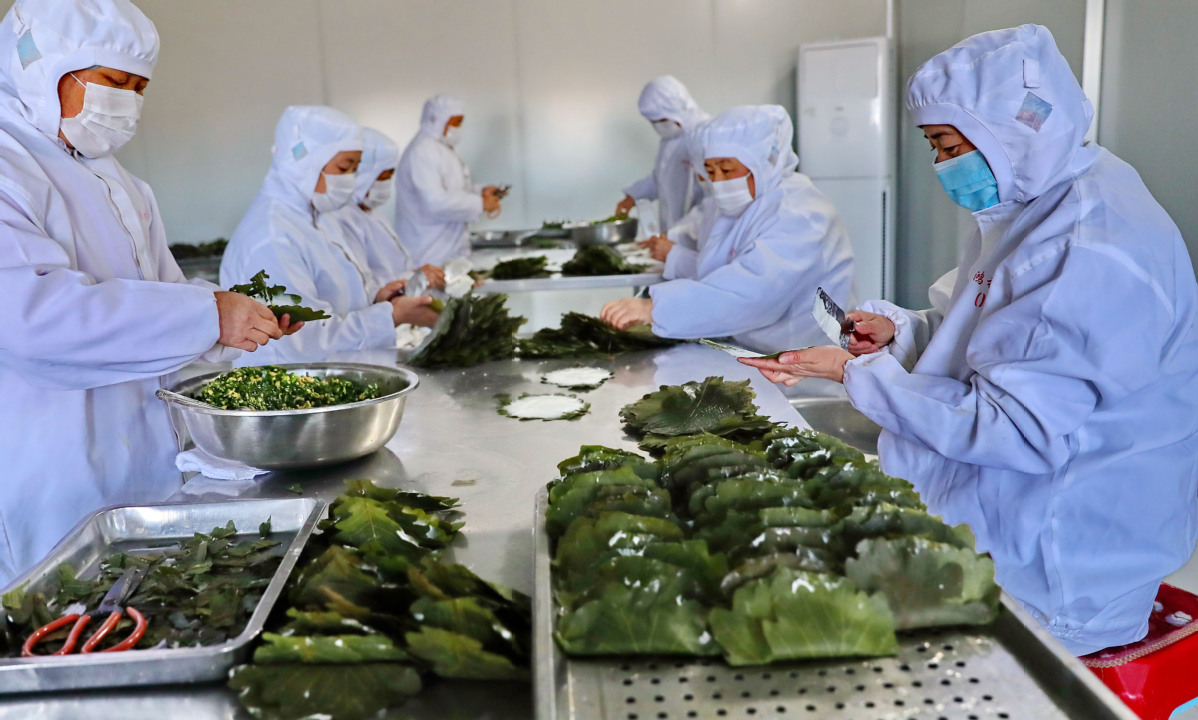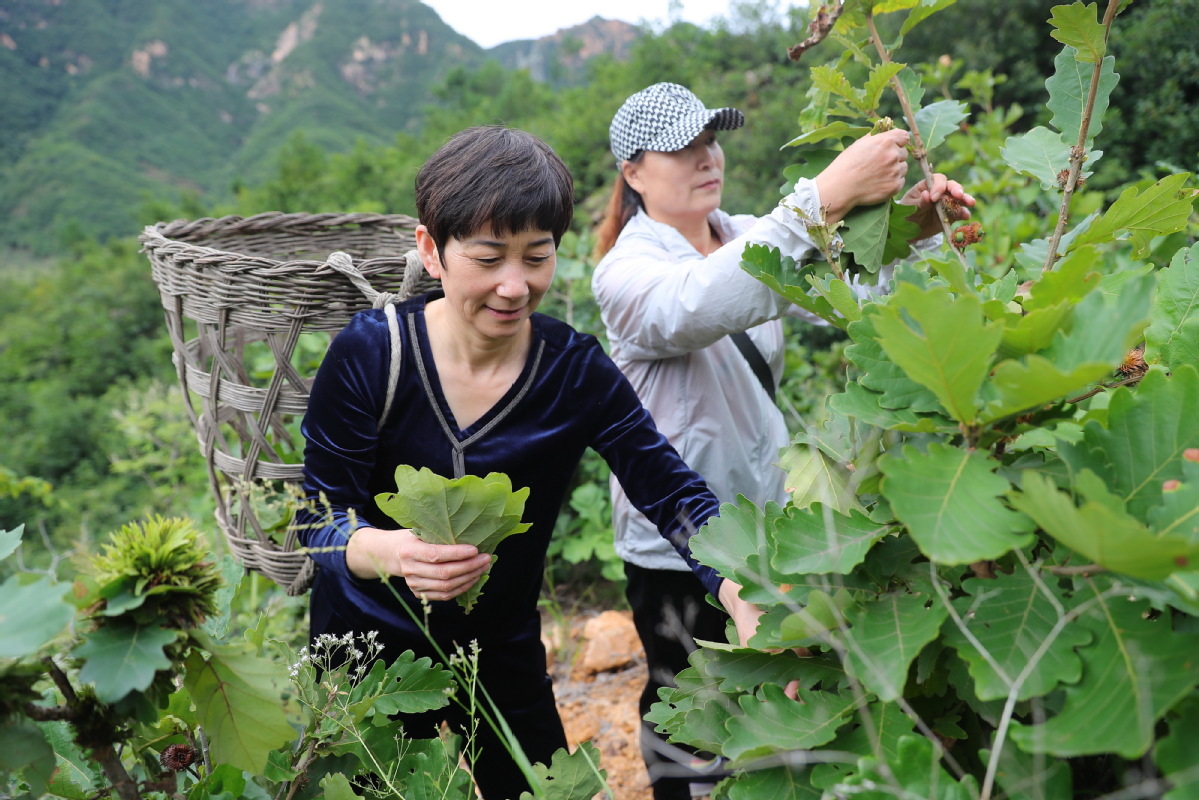Great Wall delicacy stands the test of time
China Daily | Updated: 2020-10-27 09:01

SHIJIAZHUANG-Zhao Cuiyun smeared a palm-sized leaf with corn paste, stuffed it with mashed meat and folded it into the shape of a dumpling. After 20 minutes of steaming, the oak leaf cakes were ready for packaging and sale.
Zhao is from the rural area of Qinhuangdao in North China's Hebei province, which is known for the Shanhai Pass, a major eastern fortification of the Great Wall, and works at an oak leaf cake food plant. The cakes are a culinary specialty that are a part of the Great Wall's cultural legacy and have become a cash cow for local residents.
"With the workshop at my doorstep, I can bring home 2,000 yuan ($295) a month, while being able to take care of my family and the farmland at the same time," said Zhao, 64.
Demand for the oak leaf cakes boomed during the eight-day holiday for National Day and the Mid-Autumn Festival.
Yang Guiyun, chairwoman of the Mulan Food plant in Qinhuangdao's Haigang district, doubled the daily output to cope with the extra orders.
According to locals, oak leaf cakes are a traditional food passed down from Yiwu in East China's Zhejiang province.
During the Ming Dynasty (1368-1644), soldiers stationed along the Great Wall were mainly recruited from Yiwu.
Ji Yang, a professor at Northeastern University in Qinhuangdao, said the oak leaf cakes created by the Yiwu soldiers are actually a combination of northern-style dumplings and zongzi, stuffed rice balls wrapped with reeds popular in the south.
"The soldiers missed their home specialty of zongzi, and, with no reeds or rice grown nearby, invented the cakes using local oak leaves, forming a peculiar dish while manning the Great Wall," Ji said.
Today, descendants of the Yiwu soldiers can be found living in 160 villages near the 223-kilometer section of the Great Wall in Qinhuangdao built in the Ming Dynasty, according to the local government.
Yang, one of the descendants, began selling oak leaf cakes in 2005. Her business has grown to the point where they are now sold in retail outlets in the neighboring cities of Beijing and Tianjin and in Liaoning province.
Last year, the sales revenue reached 21 million yuan, with more specialty products introduced, such as mashed bean buns and steamed bread made from cereals.
The food plant employs 30 people, and 200 households supply it with oak leaves and other plants, adding 1,500 to 2,000 yuan to each household's annual income.
Oak leaf cakes have also become a must-try dish for visitors to local restaurants specializing in rustic foods.
Yang said she plans to further expand sales via livestreaming. "I hope the cakes can be sold in Yiwu to create a new bond with the younger generations and those people in Yiwu," she said.
Xinhua
























